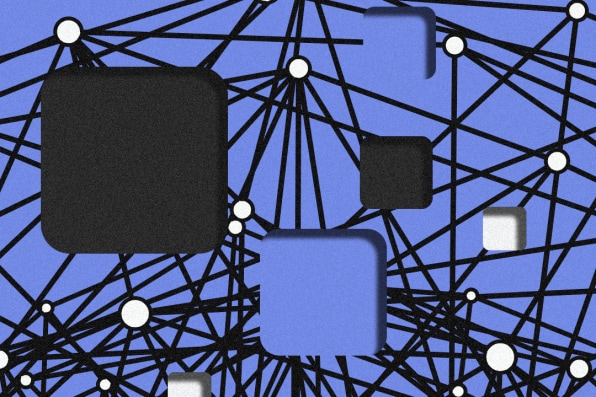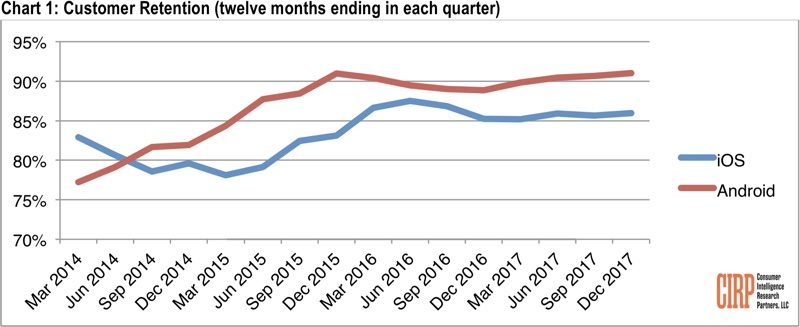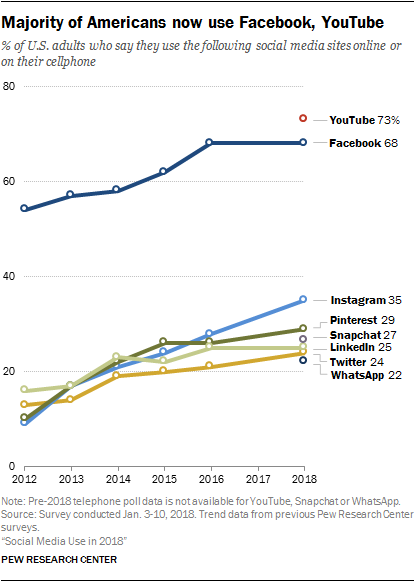mobile
Leap Motion’s “Virtual Wearables” May Be The Future Of Computing
“We are on the verge of a new era of human-computer interaction,” says Keiichi Matsuda, Leap Motion’s VP of design and global creative director.
Source: Leap Motion’s “Virtual Wearables” May Be The Future Of Computing
Facebook said the personal data of most of its 2 billion users has been collected and shared with outsiders
Facebook said Wednesday that most of its 2 billion users likely have had their personal information scraped and shared by third-party developers without their explicit permission.
See also: Accessing Your Facebook Data
Instagram stops support for Apple Watch
Instagram is bailing on Apple Watch. Slack, eBay, Amazon, Google Maps, and Whole Foods have already abandoned the device. Companies are figuring out that they do not all need to be on a device with such a limited set of functions.
Source: Instagram stops support for Apple Watch – Business Insider
The real threat to Facebook is the Kool-Aid turning sour
The more benign leaks merely cost Facebook a bit of competitive advantage. We’ve learned it’s building a smart speaker, a standalone VR headset and a Houseparty split-screen video chat clone.
Yet policy-focused leaks have exacerbated the backlash against Facebook, putting more pressure on the conscience of employees. As blame fell to Facebook for Trump’s election, word of Facebook prototyping a censorship tool for operating in China escaped, triggering questions about its respect for human rights and free speech. Facebook’s content rulebook got out alongside disturbing tales of the filth the company’s contracted moderators have to sift through. Its ad targeting was revealed to be able to pinpoint emotionally vulnerable teens.
In recent weeks, the leaks have accelerated to a maddening pace in the wake of Facebook’s soggy apologies regarding the Cambridge Analytica debacle. Its weak policy enforcement left the door open to exploitation of data users gave third-party apps, deepening the perception that Facebook doesn’t care about privacy.
Source: The real threat to Facebook is the Kool-Aid turning sour | TechCrunch
How Cambridge Analytica’s Facebook targeting model worked — according to the person who built it
How accurately can you be profiled online?
Apple updates the iPad for schools, but the price remains the same
Apple sent the iPad back to school, literally. At an event at Chicago’s Lane Tech High School on Tuesday, Apple unveiled a new model of its entry-level tablet designed to appeal to teachers and students.
The new iPad got a speed boost and support for Apple’s Pencil stylus, but keeps its familiar design and $329 price. The changes are welcome, but stop short of a full-on assault on the simple — and inexpensive — Google Chromebook laptops that have stolen Apple’s thunder in American schools.
Source: Apple Chicago event: New iPad announced at same price – The Washington Post
The 4 Design Changes Facebook Should Really Make
“In my opinion, the biggest issue that Facebook needs to address is its business model that relies on data surveillance,” Ricks says. “Facebook is one actor in a complex web of data brokers, digital services, political organizations, social platforms, and financial institutions that have profited off the mass exploitation of people’s data. Until that changes, I worry that Facebook may just be making cosmetic fixes to its platform.”
Facebook Has An App Problem
An “app,” in the eyes of your average consumer, is something you literally download onto your phone or computer. It’s a piece of software in your possession. Implied in this mental model is a sort of containment. An app is like a caged tarantula we can take out now and again. But when we put it away, it stays put away, because no one wants to wake up in the middle of the night with a giant arachnid on their face.
When Facebook began allowing apps to connect with its service to expand what users could do on the social network in 2007, this model was destroyed overnight. You were no longer downloading a piece of software that you somehow owned or that you somehow could unplug. You were connecting to a service that lived on servers, an omnipresent entity that was always there and always watching, even after you long stopped tending those Farmville crops or responding to those Words with Friends requests.
Source: Facebook Has An App Problem
Google Maps’ Cool New Tool Turns Your Real City Into A Game
A globetrotting Mario game that features your block? A SimCity playing out in your hometown? GoogleMaps’ new API makes it possible.
Source: Google Maps’ Cool New Tool Turns Your Real City Into A Game
GM said to pilot peer-to-peer car sharing through its Maven brand
Automaker General Motors is said to be planning a new peer-to-peer car rental service, similar to existing offerings by Daimler-backed Turo and startup Getaround, to debut as early as this summer.
Source: GM said to pilot peer-to-peer car sharing through its Maven brand | TechCrunch
Fitbit Versa is a legitimate Apple Watch competitor for $200
Fitbit’s new Versa smartwatch can show you personalized workouts, store music, answer texts, and track your sleep.
Source: Fitbit Versa is a legitimate Apple Watch competitor for $200 – Business Insider
Android Continues to Have More Loyal Customers Than iOS
Android customers continue to be more loyal to the Android operating system than iOS users are to the iOS operating system, according to new data shared today by Consumer Intelligence Research Partners. Android saw a 91 percent loyalty rate in 2017, compared to 86 percent for iOS, with loyalty rates for the two operating systems remaining largely steady since early 2016. Android loyalty has hovered at 89 to 91 percent since January 2016, while iOS loyalty has been between 85 and 88 percent.
Source: Android Continues to Have More Loyal Customers Than iOS – Mac Rumors
Social Media Use 2018: Demographics and Statistics
A majority of Americans use Facebook and YouTube, but young adults are especially heavy users of Snapchat and Instagram
Source: Social Media Use 2018: Demographics and Statistics | Pew Research Center
In a Multiscreen World, One Screen Is Trending Downward
The simultaneous use of second-screen devices—smartphones, tablets and desktops/laptops—while watching TV has increased year to year and will continue through at least 2019.However, 2018 will be the first year in eMarketer’s forecast in which the use of desktops/laptops in this context declines.
Source: In a Multiscreen World, One Screen Is Trending Downward – eMarketer
A Wild UI Experiment With The iPhone X’s Front-Facing Camera
That depth sensor is good for more than lame animoji.
Source: A Wild UI Experiment With The iPhone X’s Front-Facing Camera
Understanding Programmatic Auction Pricing Is a Major Priority for Marketers
As automated advertising has matured, the structure of programmatic auctions has become more confusing. In 2018, marketers are looking to break through the clutter to understand what’s going on under the hood.
Source: Understanding Programmatic Auction Pricing Is a Major Priority for Marketers – eMarketer
Vero Is Bad Design–Except For The One Way It’s Brilliant
Vero has been around since 2015, but within the last week, the app has suddenly exploded as the Instagram-Facebook-Snapchat-alternative of 2018. Currently topping the iOS App Store, Vero’s servers are being crushed under the weight of new users–though it’s unclear exactly how many. Worth noting: The company’s own message of freedom and transparency might be hypocritical at best.
So what’s driving Vero’s apparent growth? For one thing, the company is brilliantly playing on the anger many people feel at social media companies by making promises aimed at many of the public’s biggest qualms with giants like Facebook. For instance, Vero says it will never have ads. It won’t sell your data to advertisers, either. And it will never reorder your timeline via an algorithm optimized for engagement. Instead, it plans to charge you a subscription–eventually. Facebook makes about $6/quarter off its users from advertising. Vero’s premise seems to be that you pay it directly, instead.
Source: Vero Is Bad Design–Except For The One Way It’s Brilliant
Inside the FMCG Industry’s $100 Billion Path to Online Maturation
$100 billion. That’s how much U.S. consumers will spend online for food and beverages by 2025, according to new a new report from Nielsen and the Food Marketing Institute.
Source: Inside the FMCG Industry’s $100 Billion Path to Online Maturation
You Up? College in the Age of Tinder
Some found love; others learned valuable lessons about time stamps.
Source: Opinion | You Up? College in the Age of Tinder – The New York Times
Samsung announces the Galaxy S9 — here’s what’s new
Familiar beauty on the outside, more power and a better camera on the inside.
Source: Samsung Galaxy S9: Features, pricing, release date – Business Insider













